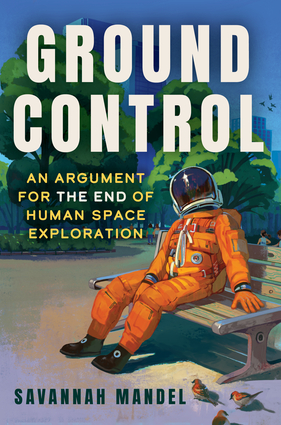Overview
In the 1960s and ’70s, America spent $24 billion (around $150 billion in today’s dollars) to land humans on the moon and “win” the space race. And while humans took their first steps on an extraterrestrial landscape, protesters at Cape Canaveral asked: Why waste money on space when there are so many issues here on Earth?More than 50 years later, an oligopoly of commercial space companies—SpaceX, Blue Origin, and Virgin Galactic—has begun sending civilians into space. These civilians are the first generation of what will undoubtedly be an extensive family of space tourists. Commercial space companies aim to expand access to space, find new sources of energy, mine outer space resources, and conquer extraterrestrial lands. But their goals remain that of a capitalist and imperialist class, intent on new frontier profiteering.
Savannah Mandel uses cultural anthropology to trace the trajectory of the space industry as it faces the social, political, and economic repercussions of commercial space ventures head-on. In doing so, Mandel holds the space industry accountable for its actions by asking the same questions that some thought leaders asked in the 1960s:
Should we go? Is it worth it to send humans to space? What cultural outcomes will result from continued human space exploration and the colonization of other worlds? And last, what can we learn about our present selves by studying our most extreme visions of the futureReviews
“In Ground Control, Savannah Mandel adroitly uses anecdotes from her career as a space industry anthropologist and commentator to argue that our current haste to plant human habitats on the moon and beyond incorporates the colonizing attitudes that have created conflict and waste on Earth. Instead, Mandel asks her readers to consider our cosmic responsibilities to not destroy other worlds as we reshape them, and to dream of a green approach toward space exploration. Her simplest recommendation—that social scientists should be part of any effort involving humans in space—deserves immediate recognition and action.” —Don Goldsmith, coauthor of The End of Astronauts
“Savannah Mandel has written
a provocative and thoughtful book that is also a very personal memoir. You need not entirely agree (and I don’t) with her thesis or all of her arguments to enjoy the great account of her trials and triumphs on the road to becoming a space anthropologist. Even certified space geeks like me will leave with new questions to consider.” —
Mat Kaplan, senior communications adviser, the Planetary Society
“Savannah Mandel has drawn from anthropology, ethics, and her personal journal for a uniquely interesting and provocative look at the future of human space exploration . . . that may surprise you.” —Kris Kimel, founder of Humanity in Deep Space
“
Ground Control is far more than just an argument about why we should question the necessity of space exploration. It’s also a very personal account that traces Savannah Mandel’s journey from true believer to space sceptic with nuance and flair. Mandel exposes the myths at the foundation of the space industry and talks about whose voices are not at the table. Along the way we learn what space anthropologists do and hear some of the hidden stories that are often left out of mainstream histories.
A highly readable and thought-provoking book.” —
Alice Gorman, author of
Dr. Space Junk vs the Universe“Well-researched and personally-driven, Savannah Mandel’s
Ground Control packs a punch and provides an important critique and call to action—or call to less action on some fronts with more efforts toward others. Mandel takes readers through space and time, from 1960s protests against Apollo exploration to recent Spaceport America conversations and to a better future that we could have here on Earth. Mandel
offers a glimpse to space industry outsiders of how things are and a glimpse for insiders on how things could be.” —
Ashley Shew, author of
Against Technoableism “On the eve of the Apollo 11 launch, civil rights activists cautioned that America’s outer space ambitions risked diverting attention from urgent issues on the ground. In Mandel’s absorbing coming-of-age story, which propels her from intergalactic enthusiasm into the orbit of political consciousness, she ultimately comes to the same conclusion. Her lingering questions—about tensions between a global resource and national interest, taxpayer investment and private profit, and communities that benefit and those which bear the costs—are ones we must confront if there is to be any hope of equitable, sustainable space exploration.” —
Alondra Nelson, Science, Technology, and Social Values Lab, Institute for Advanced Study
Author Biography
Savannah Mandel is one of just several dozen space anthropologists worldwide and a PhD candidate in science, technology, and society at Virginia Tech. Mandel has conducted fieldwork at Spaceport America in addition to working with more than eighty commercial space companies. She holds several degrees in cultural anthropology and has had research featured in
Ozy magazine,
Anthropology Now,
The Geek Anthropologist,
Physics Today, and many more media outlets.
 Mother's Day
Mother's Day Father's Day
Father's Day
